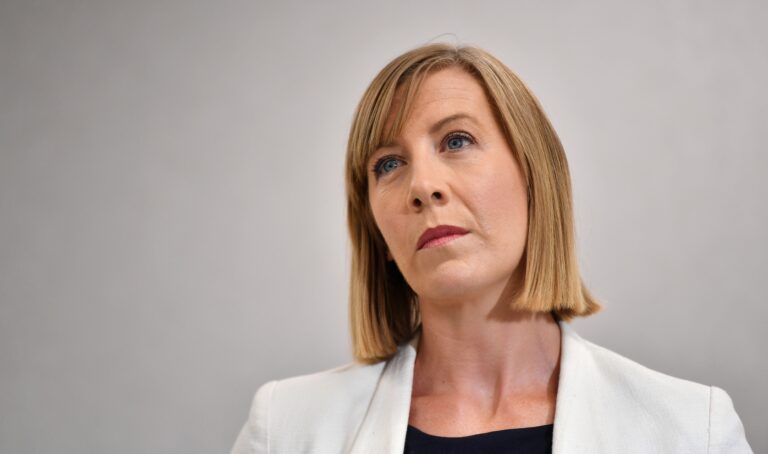
ACON acts to end abuse
BY MICHAEL HITCH
Australia’s largest LGBTIQ Health Organisation, ACON, has teamed up with the Department of Social Services (DSS) to deal with domestic family violence (DFV) in the LGBTIQ community.
The DSS has provided $340,000 in funding to bolster to nationalise Say It Out Loud (sayitoutloud.org.au), a website produced by ACON in 2016 that provides support, information and resources to the LGBTIQ community.
The funding will help Say It Out Loud reach all corners of Australia, as there are no LGBTIQ domestic violence services or projects outside NSW and VIC.
Associate Director for LGBTI Health Programming and Development at ACON, Kai Noonan, says, “Nationalisation of Say It Out Loud was a necessity due to increased demand for information from other states and territories, and said that other vital services and information would become available with the expansion. It will build the capacity for services professionals in the DFV sector.”
A national resource
Noonan says that existing research indicates that LGBTIQ people are victims of DFV at similar rates to women in the general population.
“Currently 55% of visitors to the Say It Out Loud website are in states other than NSW. This shows a need for the site to expand to include information that is relevant nationally.
“One of the integral changes to the website will be state- and area-specific service and support options for LGBTIQ people experiencing domestic or family violence.
“Currently the Say It Out Loud website focusses on intimate partner violence. We plan to expand the site to incorporate more information on sexual assault and family violence and have a sub-page with information for LGBTIQ young people, with all the information they need to get help and support.”
Other changes will include an updated “self-assessment tool” and a safety and planning tool for community and service providers, as research conducted by ACON in 2017 indicates that professionals in the DFV sector feel that they are not trained to deal with LGBTIQ matters, or that their services are not LGBTIQ inclusive.
It’s easy to understand why professionals feel they are still in the dark with this niche of domestic abuse.
Firstly, service options for LGBTIQ victims are limited. While there are support services for women, these services are normally delivered for victims with a heterosexual framing which can be unhelpful in an LGBTIQ relationship.
And while there are also support services for male perpetrators, these too are delivered with a heterosexual framing and do not encompass support for male victims.
Secondly, stigma / stereotypes and DFV can intersect and impact the ability of LGBTIQ people to identify and address unhealthy behaviours in their own relationships. In some cases, the simple idea that “men can fight back” or that “women aren’t inherently violent” can agitate abusive behaviour in gay relationships.
In other cases, victims are verbally and financially abused, and therefore feel powerless in seeking help. For example, a partner may withhold hormones from a trans or gender queer person, or tell a bisexual person that bisexuality doesn’t exist or that they need to “pick a side” and threatening to “out” someone as gay or HIV positive, are all non-physically abusive tactics that are LGBTIQ specific.
Senior Legal Education Solicitor at Legal Aid NSW, Alex Davis, battles domestic abuse at the front line and said that empowering victims through knowledge, and understanding the actions and intersections of LGBTIQ DFV, is the key to ending and preventing these forms of domestic abuse.
Unpacking the issues
“The best thing you can do is triage them [abuse victims] into seeking help. It’s about empowering people through access to information and knowing where they can get support for different parts of their issues,” she said.
“It’s also about understanding that all of the same issues with domestic abuse that happen in heterosexual relationships also happen in LGBTIQ relationships, except on top of that, you’ve got people not feeling comfortable reporting abuse. This may be due to stigma, or because other services such as Police still have out-dated views, and sometimes the abuse is not registered as “abuse” due to a different dynamic.
“DFV intersects with so many things. People may need housing, a DVO or even financial help. Within one problem, you’ve got criminal law issues, DVO issues, you’ve got civil law issues, and you’ll have family law issues, as well.
“We work closely with organisations like ACON in understanding how to unpack the legal and socio-domestic issues, and then we find out who can help with what. The extra funding can only make that job easier!”
If this story has raised any concerns for you or someone close to you – you can contact: ACON for advice and information: 02 9206 2000
Legal Aid NSW: 1300 888 529
1800RESPECT: 1800 737 732
Lifeline: 13 11 14
Relationships Australia: 1300 364 277









